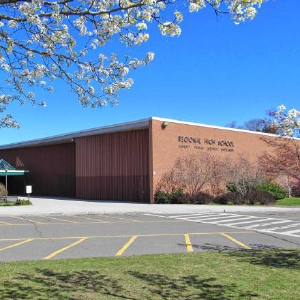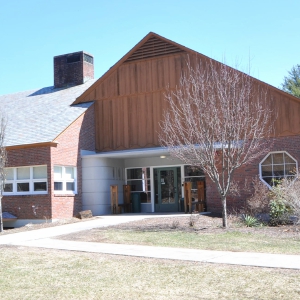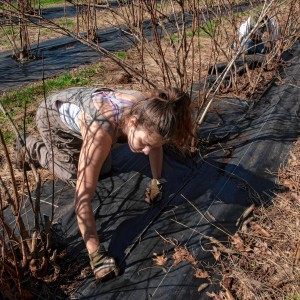Healey touts ‘A ton more money’ for municipal climate planning
| Published: 04-19-2023 5:21 PM |
BOSTON — This Earth Week, the Healey administration is revamping what it calls the state’s “flagship climate resilience program” by planning to help 30 cities and towns upgrade their climate resiliency plans through an equity lens.
The Municipal Vulnerability Preparedness (MVP) program, administered by the Executive Office of Energy and Environmental Affairs, provides grants to municipalities to complete climate change vulnerability assessments and develop “action-oriented” resiliency plans that are specific to their community.
Since its launch in 2017, 349 of Massachusetts’ 351 cities and towns have completed the MVP program, meaning they are eligible for MVP Action Grant funding for resiliency projects. The “MVP 2.0” pilot program that Gov. Maura Healey launched Wednesday will select up to 30 municipalities, five in each region of the state, to undergo an expanded MVP process over the next two years.
“We know that climate doesn’t care about town lines or state borders, so state action means little without the partnership of our local communities,” Energy and Environmental Affairs Secretary Rebecca Tepper said at a launch event at Belle Isle Marsh, which has received MVP funding to help combat flooding.
The 30 pilot communities will update their resiliency plans, which look different for each municipality based on their immediate needs related to climate change, Healey said at the East Boston press conference. A coastal community might focus on flood resilience, for example, or a Gateway City could zero in on combating urban heating.
Pilot participants will receive funding to hire an expert with skills in climate resilience and to build a community team focused on populations most impacted by climate change. With funding and technical support, municipalities will identify climate hazards, develop new strategies to improve resilience, and begin implementing the plans to adapt to climate change, according to Healey’s office.
Cities and towns that join MVP 2.0 will also receive training on best practices for climate resilience and be guaranteed at least $50,000 in funding to develop and implement new projects.
Healey said the revamped MVP program invests an additional $100 million into the resiliency plans, funded through the state’s capital budget.
Article continues after...
Yesterday's Most Read Articles
 South Hadley’s Lauren Marjanski signs National Letter of Intent to play soccer at Siena College
South Hadley’s Lauren Marjanski signs National Letter of Intent to play soccer at Siena College
 LightHouse Holyoke to buy Gateway City Arts, expand offerings and enrollment at alternative school
LightHouse Holyoke to buy Gateway City Arts, expand offerings and enrollment at alternative school
 Treehouse, Big Brothers Big Sisters turn race schedule snafu into positive
Treehouse, Big Brothers Big Sisters turn race schedule snafu into positive
 South Hadley man fatally shot in attempted robbery
South Hadley man fatally shot in attempted robbery
 Granby man admits guilt, gets 2½ years in vehicular homicide
Granby man admits guilt, gets 2½ years in vehicular homicide
 Area briefs: Transhealth to celebrate 3 year; Holyoke to plant tree at museum; Documentary film about reparations focus of Unitarian talk
Area briefs: Transhealth to celebrate 3 year; Holyoke to plant tree at museum; Documentary film about reparations focus of Unitarian talk
“There’s a ton more money — $100 million to invest in this program,” she said. “And the way we’re going to do it, the engagement is going to be super intentional with our local communities, grassroots organizers on the ground and communities and neighborhoods, also working directly with local officials. So I think you see just a super stepped-up effort to engage most directly with the community and also a heavy focus on equity, because we know that the climate crisis has created challenges for all of us across really all aspects of our lives, but we also know that for communities that are particularly vulnerable, the effects of climate change are even worse.”
After the pilot round, EEA intends to require all municipalities to undergo MVP 2.0 to remain eligible for MVP Action Grants, starting with those with the oldest MVP plans. The administration said in a press release that it encourages municipalities whose plans are more than five years old to apply for the pilot program, and suggested that communities apply as regional groups where feasible.
A new web tool called Guides for Equitable and Actionable Resilience will also launch in the next few weeks to aid communities “in understanding how local climate impacts may intersect with topics like housing and public health through data explorations, case studies, and key actions communities can take to build resilience,” the Healey administration said.
Two years ago, Gov. Charlie Baker identified the MVP program as a place where the state could grow its investments in climate solutions.
“There’s a tremendous amount of interest and a lot of proven success associated already with this MVP program, and our municipal partners throughout the commonwealth have demonstrated that this is a program that works and that we should do much more of it as we go forward,” Baker said at the time. “There’s a lot of work left to do here.”
After leaving the MVP event at Belle Isle Marsh, Healey traveled across the harbor to make another Earth Week announcement Wednesday afternoon.
At Takeda Pharmaceuticals in Cambridge, the governor unveiled an expansion of the Massachusetts Next Generation Initiative, meant to support underrepresented entrepreneurs in the Massachusetts life sciences industry.
When the program launched in 2017, it was a five-year, $1 million initiative. Each year, MassNextGen selected two companies to receive $50,000 and executive coaching, which included mentoring and access to a network of entrepreneurs, investors and industry experts, WBUR reported.
The new iteration of MassNextGen will increase funding to $100,000 per awardee, double the cohort size and provide year-round networking sessions for the entrepreneurs to meet with venture capitalists.
The program was originally geared toward early-stage biotech companies run by women, intended to address gender gaps in the life sciences industry. This expansion will see MassNextGen include more individuals from underrepresented groups, such as people of color; transgender, agender and nonbinary people; people with disabilities; and veterans.
“The emphasis of our team is equity and combating the climate crisis,” Tepper said.

 Amherst regional district towns seek middle ground on school increase
Amherst regional district towns seek middle ground on school increase Leverett Town Meeting voters will decide cease-fire call, budgets, town elections
Leverett Town Meeting voters will decide cease-fire call, budgets, town elections  A Look Back: April 22
A Look Back: April 22 Regional farming alliance strengthens educational, networking opportunities for apprentices
Regional farming alliance strengthens educational, networking opportunities for apprentices
